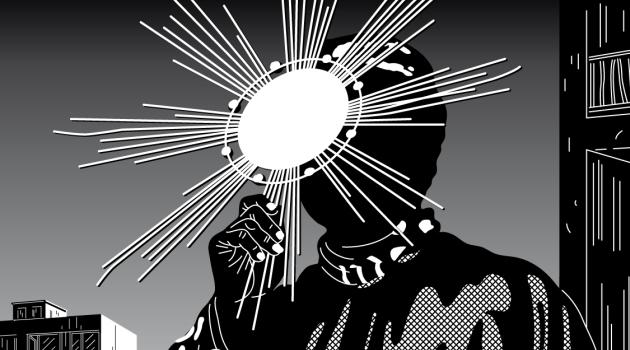Czech Republic: Romani people discuss whether the approach of Afrofuturism could empower them

On Friday, 16 June, the Romafuturismo Library hosted a discussion at the Tranzitdisplay Gallery about Afrofuturism and how it could relate to Romani people. The discussion began with a Skype conversation with writer and director Ytasha L. Womack, who talked about her film, “A Love Letter to the Ancestors from Chicago”, and her book, “Afrofuturism: The World of Black Sci-Fi and Fantasy Culture“.
Other guests included Romani rapper P.A.T., Romani Studies scholar Michal Mižigár, Romani author Eva Danišová, and Jan Čonka of the gipsy.sk organization in Slovakia. Romani activist Edita Stejskalová moderated the discussion after interviewing Womack.
Afrofuturism is more than just science fiction. Womack said it is about envisioning the future and alternate realities through a black cultural lens.
She also described it as “an intersection of black culture, the imagination, liberation, technology and mysticism.” From this perspective, the act of taking control of and shaping one’s own future can be liberating.
Imagining one’s future can be viewed as an act of revolution. The moderator asked Womack whether she believed such an approach might be used by Roma too and asked where African Americans “find resilience”.
Womack replied that resilience can come from “Using the imagination to imagine a world beyond the world that you’re placed in. I think that that’s very empowering for people to feel like they can make a difference and that they can change the world.”
“There’s also unique experiences that different cultures have had that can provide… insight into who we are as human beings,” the author and filmmaker said. “So absolutely, I see that parallel [to the Roma experience].”
Womack spoke of how people frequently look to spirituality and the idea of a greater destiny to find resilience. She also spoke of drawing strength from the past by acknowledging that the present is not as difficult as the trials her ancestors faced.
According to the author, African Americans tend to “look to arts and culture… to music. That’s why it’s so important to create more books, more movies, more art. So that people can see themselves in the kind of world that they’d like to function in or see themselves in the stories that best fit their lives or their aspirations.”
In the discussion that followed, some of the panelists expressed themselves in ways that unfortunately reiterated various antigypsyist stereotypes. Audience members and some panelists pushed back, calling for Romani people to discuss each other using language that is more empowering.
